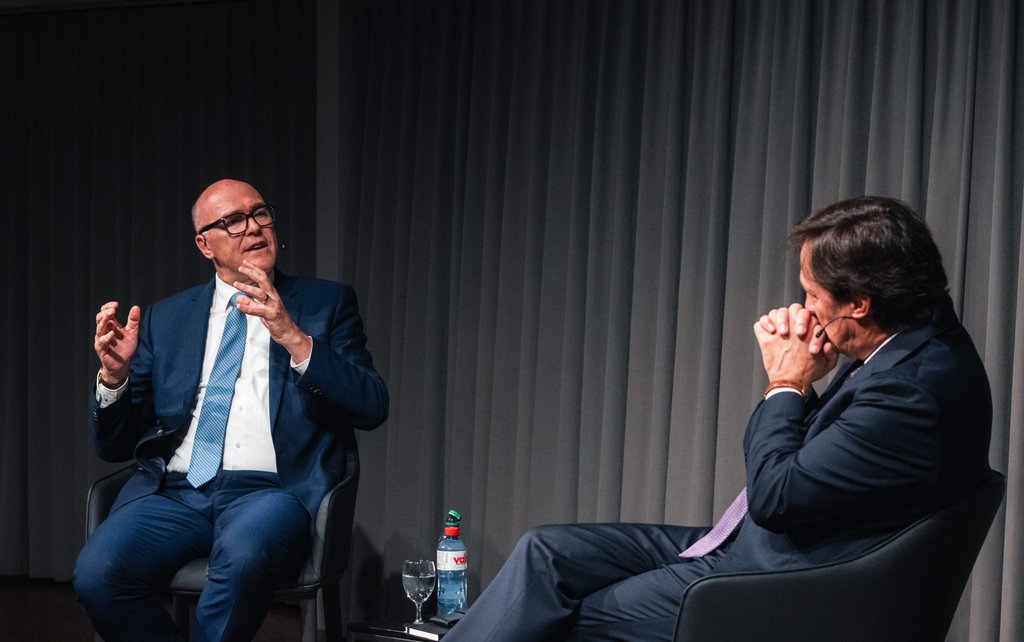Campus - 13.10.2025 - 12:00
Right at the start of the evening, the defence minister had to admit defeat. When Christoph Frei asked him whether the Olma trade fair currently taking place contributed as much to Switzerland's cohesion as the Federal Council, Pfister had no choice but to concede. He admits with a smile that this certainly does not apply to the country as a whole, but he cannot rule it out for eastern Switzerland. This set the tone for the evening: open, approachable, self-critical. Then things got serious.
Frei began the discussion with a quote from Inspector General of the German Armed Forces Carsten Breuer on the current security situation: “We are in a state that is no longer quite peace, but not yet quite war.” Martin Pfister shares this assessment. He speaks of fundamental upheavals, hybrid warfare, and warns against influencing elections and attempts to divide societies, against espionage and sabotage. “We are in such a war, without tanks being visible.”
The head of the DDPS leaves no doubt about the seriousness of the situation. “We cannot understand the situation dramatically enough.” Russia has increased the strength of its troops from 1 million to 1.6 million and converted its economy to a war economy. Enormous rearmament is taking place. In the West, too. European countries have increased their defence budgets to up to 5 % of GDP. In Switzerland, however, it is currently only 0.7 %.
What does this mean for neutral Switzerland? Martin Pfister makes it clear that the country cannot solve many challenges on its own. If drones or enemy jets appear over St.Gallen, “it will be too late.” Switzerland cannot invoke Article 5 of the NATO Treaty and declare an alliance case. He therefore calls for cooperation and “interoperability”. This is a challenge, Christoph Frei interjects, when the left does not want to increase defence spending and the right insists on “strict neutrality.” The head of the DDPS agrees and points out that, in view of the threat situation, Switzerland must maintain solidarity with its neighbours, emphasising: “We cannot solve many security policy challenges on our own.”
Christoph Frei turns the conversation to Swiss society and its citizens. According to the professor emeritus of political science, they are “spoiled by prosperity and peace.” So what about their ‘ideal defence capability’, their willingness to fight for their country and an open society in an emergency? Pfister leaves no doubt: “We need people who are willing to tackle the problems now.” The call for commitment is a recurring theme throughout the evening. And even if agreement has not yet been reached in all areas, “I am optimistic that young people will get involved,” says Pfister confidently. He senses this in many encounters. But politics and administration also have a role to play. “We need to become more agile in general.”
And while Christoph Frei of the Federal Council in Bern sometimes calls for more “orientation and leadership,” Pfister wants universities, teachers and students to actively participate in the security policy discourse. Science can play a “guiding role.”
The public evening event organised by students of the Security Policy Forum in the packed Audimax set an example of student engagement and presented a Federal Councillor who does not mince his words.
Images: Gion Wurster / Security Policy Forum
